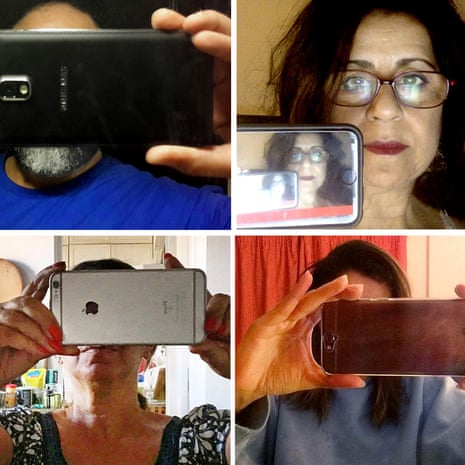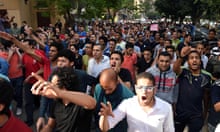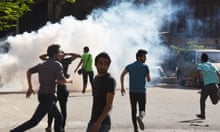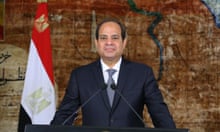Egyptian activists are using social media to demand the release of five detained members of a satirical street performance group whose video clips mocked the president, Abdel Fatah al-Sisi.
The activists posted pictures on Facebook of themselves holding mobile phones in front of their faces with the caption: “Does a mobile phone camera rattle you?”
Police arrested four members of the group Awlad el-Shawarea (Street Children) on Monday. A fifth member was arrested over the weekend and remains in custody despite a court ordering his release.
The performers face several charges, including inciting terror attacks and street protests, attempting to overthrow the government and insulting state institutions, according to their lawyer Mahmoud Othman.
Othman told Associated Press on Thursday that the five were being held at a police station in the Cairo suburb of Heliopolis.
“I last saw them [on Wednesday] and they are in good condition,” he said. “The prosecution, regrettably, does not see their clips as creative work protected by the constitution.”
The five are Ezzedeen Khaled, Muhammad Adel, Muhammad Dessouki, Muhammad Yahya and Muhammad Gabr. Othman said their ages ranged between 19 and 25. A sixth member of the group, Mohammed Zein, has not been detained, he added.
Awlad el-Shawarea is part of a street-based art, music and graffiti movement born out of Egypt’s 2011 uprising and fuelled by liberal youths opposed to both the rule of Islamists and the military. Authorities in recent months have sought to clamp down on the movement, closing a popular arts centre in downtown Cairo and cancelling some street art festivals.
The move against Awlad el-Shawarea underlined the government’s diminishing tolerance for dissent and signalled that its next target could be social media networks, one of the last remaining platforms for young, pro-democracy activists and artists to air their views and work.
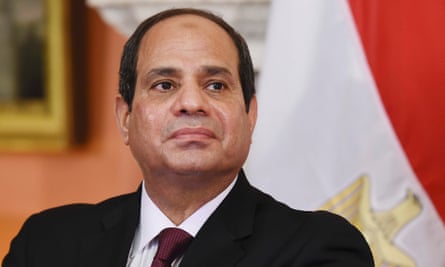
Recent clips by the group were entitled “Al-Sisi, my president, made things worse,” and “Leave”, a chant that was popular during the 2011 uprising that forced autocrat Hosni Mubarak to step down. Other clips mocked the president’s habit of ending speeches with “Long live Egypt!” and his recent reference to advice by his late mother “never to covet what belongs to others”.
The famous Egyptian satirist Bassem Youssef took part in an online campaign to free the activists on Thursday. Youssef’s show was taken off the air a few months after then-military chief Sisi ousted Egypt’s first freely elected leader, the Islamist Mohamed Morsi, in July 2013.
“If you truly are not scared of anyone, let them go free,” Youssef said in a brief video, addressing Sisi and referring to the five performers and other political detainees. He was alluding to the president’s recent assertions that no one scares him.
Egyptian actor Amr Waked, who played the rich Arab chieftain in the widely acclaimed 2012 movie Salmon Fishing in the Yemen, also took part in the campaign, as well as Yousry Nasrallah, one of Egypt’s most respected film directors, prominent human rights advocate Ghada Shahbander and novelist and rights campaigner Ahdaf Soueif.
Sisi took office in June 2014, nearly a year after Morsi’s ouster. He has since overseen the arrest of thousands of Morsi’s supporters as well as scores of pro-democracy activists behind the 2011 uprising. The government has defended the crackdown and the erosion of freedoms since the 2011 uprising by saying it is trying to restore stability, revive the economy and defeat an increasingly powerful insurgency based in the Sinai Peninsula.
Sisi’s announcement last month that his government intended to surrender control over two strategic Red Sea islands to Saudi Arabia sparked a series of protests that were met with one of the biggest rounds of arrests in the last two years.
